The Battle for Karachi
By Mazhar Abbas | Newsbeat National | Published 7 years ago
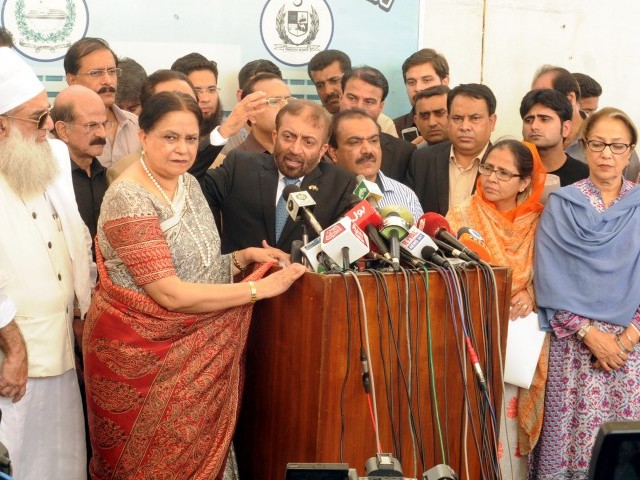 For a number of years, the outcome of elections in Karachi, the country’s economic hub, could be easily foretold, as the Muttahida Qaumi Movement (MQM) walked away with practically every seat it contested. Recent events have, however, led to an implosion in the party, breaking its stranglehold and rendering the outcome of the upcoming elections unpredictable.
For a number of years, the outcome of elections in Karachi, the country’s economic hub, could be easily foretold, as the Muttahida Qaumi Movement (MQM) walked away with practically every seat it contested. Recent events have, however, led to an implosion in the party, breaking its stranglehold and rendering the outcome of the upcoming elections unpredictable.
One National Assembly (NA) and two Provincial Assembly (PA) seats have been added on after the census and the ensuing delimitation exercise, so there will be a race for 21 NA and 43 PA seats in Karachi. The MQM had won 17 out of 20 NA seats in 2013 and 18 in 2008.
Three major political parties, the Pakistan Peoples Party (PPP), the Pakistan Muslim League (PML-N) and the MQM, dominated Pakistan’s political scene from 1988 to 2008. All three are struggling in one way or the other, leaving way for other parties to fill the vacuum. The PPP is confined to Sindh, while the MQM is struggling to survive in the face of internal differences. The PML-N is still very much in the race, but the disqualification of former PM Nawaz Sharif and subsequent developments pose a challenge.
Imran Khan and the Pakistan Tehreek-e-Insaf (PTI) have emerged as the third option at the national level. While the PTI practically replaced the PPP in Punjab, it also emerged as a potent challenger in Karachi, when it pulled in some eight lakh votes in 2013. It pushed the MQM to fourth position at the national level and in 2018 its leader seems confident of a clean sweep.
2013 marked the beginning of the rise of Imran Khan and the fall of the PPP, not merely because they lost everywhere except Sindh, but because after 2008, Pakistani politics revolved around pro-and anti-Nawaz rather than pro-and anti-Bhutto politics.
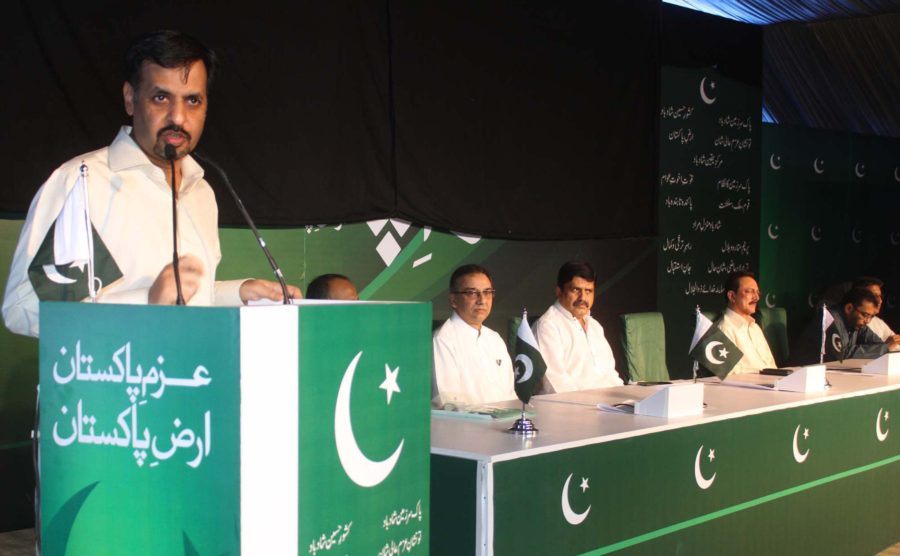 Pakistani politics has also seen many ups and down due to non-political reasons since 1988, and that is why election results often come as a surprise. For instance, in the November 1988 elections, the PPP secured 92 seats against the Islami Jamboori Ittehad (IJI)’s 56, but within two years, when elections were held in 1990, the PPP secured 46 seats against the IJI’s 101. In 1993, PPP won 86 out of 207 seats while PML-N won 72. In 1997, the PPP was confined to just 18 seats and the PML-N swept the polls, becoming the first party ever to win a two-thirds mandate.
Pakistani politics has also seen many ups and down due to non-political reasons since 1988, and that is why election results often come as a surprise. For instance, in the November 1988 elections, the PPP secured 92 seats against the Islami Jamboori Ittehad (IJI)’s 56, but within two years, when elections were held in 1990, the PPP secured 46 seats against the IJI’s 101. In 1993, PPP won 86 out of 207 seats while PML-N won 72. In 1997, the PPP was confined to just 18 seats and the PML-N swept the polls, becoming the first party ever to win a two-thirds mandate.
During these years, the MQM was on a winning streak, with back-to-back landslide victories in urban Sindh, from the 1987 local bodies elections to every general election. There were just two upsets, one in 2002, when the Muttahida Majlis-e-Amal (MMA) won six NA seats, and the second in 2013, when the PTI pulled in a substantial vote. The MQM committed two major political blunders. One when they boycotted the 1993 NA elections and provided space to other parties, and the second, in 2001, when they boycotted the local bodies elections and Jamaat-e-Islami (JI)’s Naimatullah Khan became the Mayor of Karachi.
Until 2013, the MQM had the city in its grip, but it badly misread the ‘Karachi operation’ launched in September 2013, which broke the backbone of militancy. An enraged Altaf Hussain wreaked further havoc by raising anti-Pakistan slogans on August 22, 2016 while addressing party workers outside the Karachi Press Club. The MQM’s Pakistan chapter was compelled to distance itself from his actions. Altaf’s speech was followed by strict action and the MQM could not recover from this blunder. His speech was banned through a Lahore High Court order, and in Karachi, Rangers sealed the MQM’s headquarters and secretariat. Rallies were banned in the adjacent Jinnah Grounds.
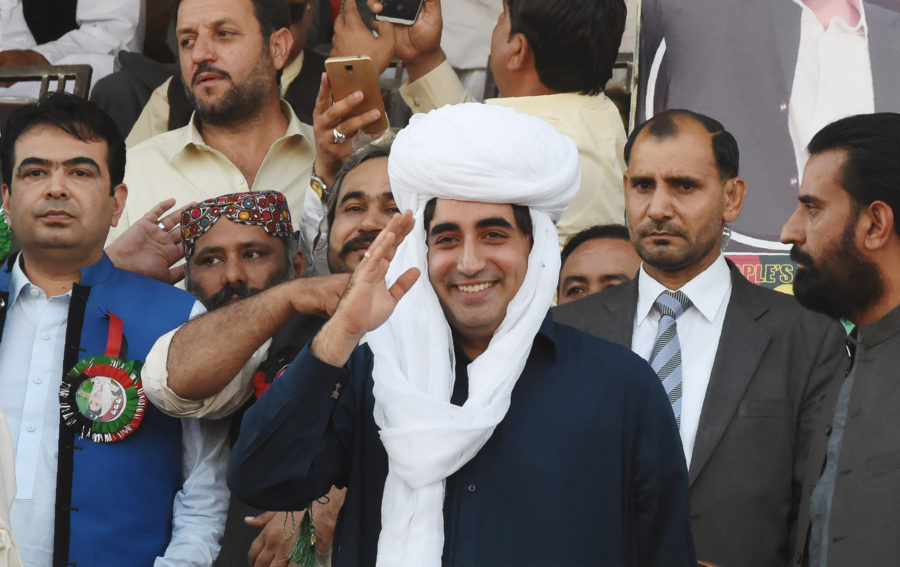 The MQM (Pakistan) emerged as a result, severing the party’s relationship with its founder Altaf Hussain. Another faction, the Pak Sarzameen Party (PSP), was formed by MQM dissidents, the former Mayor Karachi, Syed Mustafa Kamal and erstwhile MQM Haqeeqi leader, Anis Qaimkhani.
The MQM (Pakistan) emerged as a result, severing the party’s relationship with its founder Altaf Hussain. Another faction, the Pak Sarzameen Party (PSP), was formed by MQM dissidents, the former Mayor Karachi, Syed Mustafa Kamal and erstwhile MQM Haqeeqi leader, Anis Qaimkhani.
The party then got further divided into the MQM (PIB) and MQM (Bahadurabad) factions.
Whereas a united MQM could have retained its four seats in the Senate, the divisions brought the party down to one seat. To better its position, the MQM will have to come together and overcome differences, but in the current scenario this seems highly unlikely.
If the MQM London boycotts the elections and asks its voters to stay home as a mark of protest, this will pave the way for parties like the PPP, PTI, the coalition of religious parties, the MMA and, to some extent, the PSP.
Syed Mustafa Kamal, as mayor of Karachi between 2003 and 2007, helped to improve the party’s image and substantial development work was completed in the city during his tenure. Dents started emerging in the MQM in 2008, after the party decided to join a coalition with the PPP and that too after former Home Minister, Dr Zulfiqar Mirza’s offensive against the MQM. Before taking the controversial decision, the MQM held an ‘internal referendum’ on the question of whether to join the Sindh government or not. The result, which was never made public, was against joining and yet they went ahead.
After the 2013 elections, Altaf Hussain was furious when reports reached London that sectors and units were not active enough, and the MQM had lost some polling stations in strong constituencies to the PTI. Even families of MQM leaders voted for the PTI in some areas. On May 19, about a week after the elections, MQM General Body workers, the MQM Rabita Committee and Tanzeemi Committee were held responsible for PTI’s success. Though the MQM had retained most of its seats, workers misbehaved and manhandled many members of the Rabita Committee, Anis Qaimkhani and Mustafa Kamal among them. The two fled to Dubai and did not return till March 2016, when they formed the Pak Sarzameen Party.
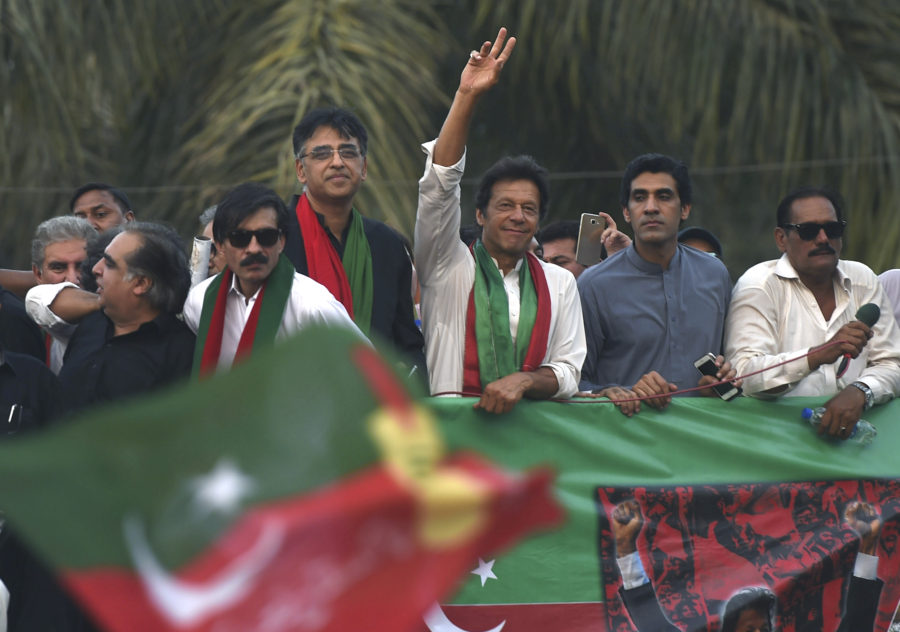 Kamal and Qaimkhani, despite being branded part of the establishment’s game plan, have managed to make their presence felt since Kamal first announced the formation of a new party at a highly charged press conference. Over the last three years, the PSP has certainly developed an organisational network and reasonable structure, but the real test will be when they go to the polls. Although they have tried to portray the PSP as a party for the whole of Pakistan, its prime task is to break the MQM vote bank. It remains to be seen whether they can accomplish the task.
Kamal and Qaimkhani, despite being branded part of the establishment’s game plan, have managed to make their presence felt since Kamal first announced the formation of a new party at a highly charged press conference. Over the last three years, the PSP has certainly developed an organisational network and reasonable structure, but the real test will be when they go to the polls. Although they have tried to portray the PSP as a party for the whole of Pakistan, its prime task is to break the MQM vote bank. It remains to be seen whether they can accomplish the task.
During the 1970 elections, former Prime Minister Zulfikar Ali Bhutto tried to win over Karachi, and gave tickets to Mohajir notables like the late Jamiluddin Aali and Hakim Saeed. However, the imposition of a quota system for jobs and the passage of the Sindh Language Bill anatagonised the Mohajirs and eroded the PPP’s support. From 1970 to 2013, the PPP only secured two or three NA seats in Karachi, although they always had a reasonable vote bank, as reflected in its performance in the local bodies elections. In 1988, the PPP improved its position and got three NA seats, including one from a Mohajir-dominated area, when its Urdu-speaking candidate, Amir Haider Kazmi, won by the margin of a few hundred votes. Whether by design or due to mishandling, the PPP failed to bridge the serious ethnic polarisation after the 1988 Hyderabad Pukka Qilla massacre. Although it entered into an agreement with the MQM for a coalition government, the level of mistrust remained, only to be exploited by ‘non-political forces.’
After the 2013 elections, the PPP formed the government in Sindh, while the PML-N ruled at the centre. Interestingly, both parties decided not to induct the MQM in the coalition. For the first time following the elections, neither Zardari nor Nawaz Sharif visited 90 Azizabad, to greet Altaf Hussain and enter into negotiations.
In 2013, the PPP changed tactics in Karachi. First, it brought an amendment in the Sindh Local Government Ordinance, and practically took over all financial powers from the Mayor, making all major decisions subject to the approval of the Sindh government. The government then launched development projects, building bridges and roads in Karachi. The Karachi Operation and the MQM split came as a blessing for the PPP, which is now confident of winning five to six NA and eight to 10 PA seats in Karachi.
In the ’70s, Karachi’s political scene was dominated by religious and ethnic politics. Its voting trend, by and large, remained right wing. The Jamaat-e-Islami (JI), along with Jamiat Ulema-e-Pakistan (JUP), led by the late Maulana Shah Ahmad Noorani, dominated urban Sindh’s politics from 1967 to 1977.
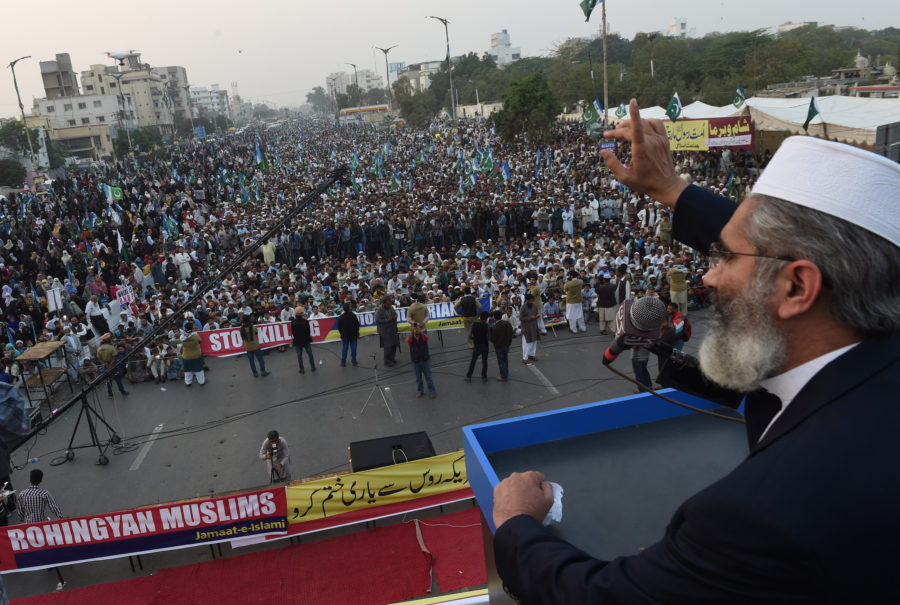 Due to an MQM boycott, the JI won the 2001 LB polls from Karachi. Its vote bank has, however, declined over the last decade, to the extent that its candidates even lose their sureties.
Due to an MQM boycott, the JI won the 2001 LB polls from Karachi. Its vote bank has, however, declined over the last decade, to the extent that its candidates even lose their sureties.
The JI’s biggest political blunder was when it suddenly boycotted the elections in Karachi in 2013, and thus gave space to PTI. It either lost or did not contest the post 2013 by-elections. The MQM split has now given it the opportunity to recoup and secure at least two or three seats. It will contest from the MMA platform, which includes JUI (F) and JUP (Noorani).
Imran Khan came into the limelight in Karachi politics when he took a strong position against Altaf Hussain. Since his party, along with the JI, boycotted the 2008 elections, he could not make any impact in Karachi until 2013. By then, Imran was viewed as an attractive alternative even by upper and middle class families, who had never seen the inside of a polling station. When the JI announced a boycott in Karachi on the afternoon of polling day, in utter confusion many of its voters cast their vote in favour of PTI. A large number of Pashtoons, who in the past had voted for the Awami National Party (ANP), MMA or PPP, also voted for Imran.
However, the PTI could not build on its achievement or sustain its popularity due to its poor organisation, despite having several veterans and some founding members in Karachi. The surprise entry into PTI was that of noted anchor, Dr Aamir Liaquat, who was associated with the MQM but distanced himself after August 22, 2016. He would be among the possible NA candidates from Karachi, along with Imran Khan.
Imran’s decision to contest from Karachi can breathe new life into the PTI, and if he manages to improve on the party’s performance, the PTI may win a few seats.
Among other parties, it will be interesting to see how the ANP and the Tehreek-e-Labbaik (TLY) Pakistan, which emerged as a new party with the old JUP narrative, perform.
As things stand today, 21 NA and 43 PA seats, divided into six districts, Central, East, West, South, Malir and Korangi, will be wide open for mainstream national parties like the PPP, PTI and MMA, and for the newly-formed PSP.
Predictions about Karachi or urban Sindh have never been as hard, as they are in 2018. In the past, most political pundits predicted a 90 per cent win for the MQM with the remaining seats divided among other parties, but after the fall of the MQM as a party that premise does not hold.
A strong anti-MQM vote bank usually stands divided between the PPP, JI, MMA, ANP, PML and now PTI. For the first time, even the pro-MQM vote bank, mainly Urdu-speaking or Mohajir, would also be divided, making election 2018 more exciting and open.
As senior MQM leader, Faisal Sabzwari, put it, “If the MQM factions contest the election from one platform with one election symbol and one flag, I am sure they will retain most of their seats. If not, there are either huge losses in store or it may be all over.”


